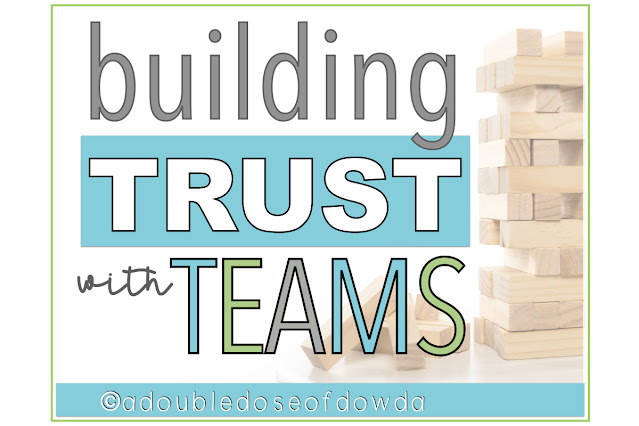A lack of trust leads to dysfunction in teams.
In this post, I am sharing Kaser and Halbert’s five components of trust.What to look for in this post:
- Benevolence
- Competence
- Reliability
- Honesty
- Openness
[0:30] Building trust with teams: Benevolence
The first facet is benevolence, meaning that on a team there is a shared feeling of having each other’s backs. Team members should not act selfishly. If one person on a team values themselves more than the others, that brings down the whole team.[0:46] Building trust with teams: Competence
Competence is the feeling that every member of the team has the knowledge or skills to do a good job. Team members must believe that the other people on the team can achieve the goal, even if they are not currently acting on it.[1:00] Building trust with teams: Reliability
Reliability is the belief that you can count on another person’s behavior. I think about this in terms of predictability, because it builds more trust if you can predict another person’s behavior. Unpredictability makes it hard to trust others. If you do not know how someone is going to respond, then they are not reliable. Even if you know that someone will have a negative response, that can still be something predictable or reliable. If one person is seen as unreliable, then you begin looking at the rest of the team with distrust.[1:40] Building trust with teams: Honesty
Honesty means that your words match your deeds - even if the result is undesirable. People should know that you are going to follow through on what you say. If you do not follow through, that is seen as a lack of honesty. Someone can be well-liked, but not trusted if they do not have follow-through. That hurts a team and has the potential to break trust.[2:04] Building trust with teams: Openness
Openness means a willingness to be vulnerable to a new idea or strategy, and being receptive to learning new things and giving up control. These are all important components of building a trusting and highly functional team.Check out these related posts:
Knoster’s Model of Change: An Instructional Coaching Strategy
Types of Feedback for Instructional Coaching: Bless
Types of Feedback for Instructional Coaching: Address
Types of Feedback for Instructional Coaching: Press
Instructional Coaching in 5 Words
4 Tips for a New Instructional Coach
Check out these related YouTube videos:
Knoster's Model for Lasting Change
Coaching Feedback for Teachers: Part 1: Bless
Coaching Feedback for Teachers: Part 2: Address
Coaching Feedback for Teachers: Part 3: Press



No comments
Post a Comment